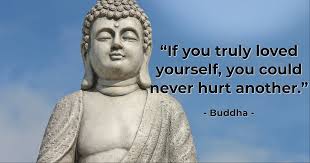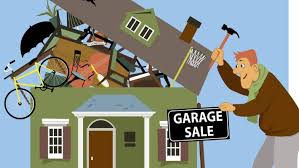歡迎您加入 英文/知識/交友 文章請點選欄位
週二(4/30)1.託夢---神明來夢中! 2.新趨勢----簡約風
晚上10:28
No comments
板區橋文化路一段421巷11弄1號 (陽光甜味咖啡館)
埔捷運站1號出口 旁邊7-11巷子進入20公尺 看到夏朵美髮左轉 PM 7:00-9:30


託夢---神明來夢中!
What is the meaning of dreams in Buddhism? | Questions to Lama Ole Nydahl
Lama Ole’s answer:
First of all, ordinary life is more important than dreams, because this normal waking state that we experience now is a collective dream. In contrast, whatever happens during the night is just individual dreams. We also wake up every morning within more or less the same dream, while at night the dreams change constantly. Our dreams at night are mostly related only to the mind, while the dream we are experiencing right now includes our body and speech.
On the other hand, we have special kinds of wisdom in dreams that we don’t have here, because we are more tied to experience and have more attachment during the waking state. One can also definitely deduce things from dreams.
To do this, we can divide the night into three phases. During the first third, the impressions of the day get put into different drawers in the store consciousness. In the second third, some people have nightmares; they feel pressure and difficulties in the middle of the night. I myself don’t know about this, but if it happens it can have two causes: disturbing energies from the outside or too-slow breathing that causes the body to develop fear of dying. The body then discharges a lot of adrenaline, and when our consciousness perceives this it reacts—“Hey, danger! Enemies!” But in fact it is only the body reanimating itself.
And then the third part of the night is useful. Shortly before waking up, one can dream of the immediate future. And right in the moment of waking, one can dream of the somewhat more distant future. This way, our store consciousness tries to bring a message through the clouds of ignorance and veils into the moment of awareness. This happens in dreams; the mind tries to show itself something. But it has big hindrances caused by expectations, fears, veils, tomorrow and yesterday, etc., which make what is displayed inaccurate.
But in general, you can say that dreams in color are more important than those without color. Dreams with upward movement are a good sign and those with descending movement are not so good, except when one decides out of great compassion to go down consciously and help the beings there. Mind is the boss; it can transform this.
For Buddhists the best dream, of course, is to see one’s lama or buddhas, to receive blessings, or to hear mantras. That’s absolutely great! It means that during the process of dying, the good impressions are so strong and deep that they will come up from the store consciousness and help us into a good rebirth.
In general, also for non-Buddhists or those who don’t work with their minds, the feeling one has while waking up is crucial. If, for example, you have killed people during the night and you wake up feeling wonderful, then this doesn’t mean that you have found your true sadistic nature, but rather that you have removed disturbances. And if you were helping elderly women cross the street all night but you wake up with mixed or bad feelings, then you surely had subconscious thoughts of being mentioned in their wills later.
In any case, the most important thing about dreams is to experience that which is dreaming, the dreamer itself. Try to know who is dreaming and what is being dreamt. And during the day, try to bring the feeling of dreaming into life. Then you are coated with Teflon—you are protected. You won’t get caught by disturbing emotions as much as usual.
新趨勢----簡約風
The decluttering trend could be a good thing for the environment
University of Arizona
Television shows like Marie Kondo's "Tidying Up" have shined a spotlight on minimalism and the potential benefits of decluttering.
In the Netflix series "Tidying Up," Japanese organization specialist and author Marie Kondo helps people pare down clutter and create more orderly spaces. The show has inspired thousands of viewers to rethink how they fold T-shirts and toss belongings that don't "spark joy."
But why is the series so popular, and what does the Kondo movement – and the minimalism trend in general – mean in the grander scheme of things?
In an age of overconsumption, getting rid of unnecessary items can bring people a sense of personal relief and pride, but it can also be part of a larger move to a lifestyle that is more environmentally sustainable, says Sabrina Helm, associate professor of family and consumer sciences at the University of Arizona.
Consumers need to be careful, though, not to simply fill cleared-out spaces with more stuff, she warns.
Helm, who teaches in the Norton School of Family and Consumer Sciences in the College of Agriculture and Life Sciences, talked with UANews about some of the psychological, social and environmental implications of moving toward a simpler lifestyle.
Q: Why do you think Marie Kondo and minimalism are so popular?
A: The minimalist movement taps into several cultural trends and global issues. First, consumers' lives are oversaturated; many houses are filled with "stuff," and as consumers, we have been trained to consume more and more, accumulating cheap stuff we don't really appreciate or value but deem disposable. In addition, interest in reality TV shows is still growing, with shows such as "Hoarders" already running for 10 years. Social media has a dominant role in inspiring and growing new cultural movements, so some influencers, such as "The Minimalists," find fertile ground for spreading new approaches to principally old ideas – namely, that more stuff does not mean more happiness. Amidst all this, there is also a growing movement around sustainability, and many now do realize that buying all that "stuff" wastes scarce planetary resources, leading them to reconsider what is really needed for having a fulfilled life.
Q: Do we see generational differences in who is embracing these ideas?
A: Reasons for embracing a simpler lifestyle are manyfold, and this idea may be appealing for all age groups, as can also be seen when watching "Tidying Up." Downsizing is appealing to many baby boomers, for example. The social media hype surrounding Marie Kondo indicates that millennials may be more engaged. What would be interesting to research in more detail is if the 2008 recession has left an imprint on consumers who grew up during that time or were hit hard by the economic consequences. I discussed this with my students, and some mentioned that their parents have a hard time giving things away because of an uncertain future, which may require them to have all that "stuff" again. So, they'd rather hold on to everything. Younger consumers may be more motivated by the green movement and climate change considerations.
訂閱:
張貼留言 (Atom)


















0 意見:
張貼留言